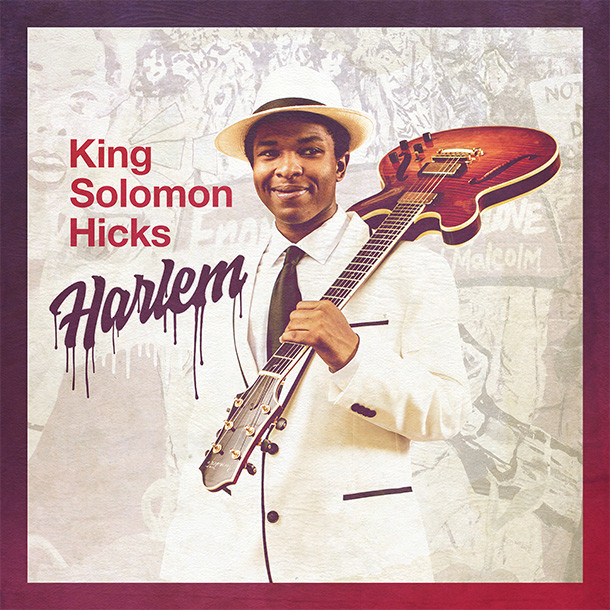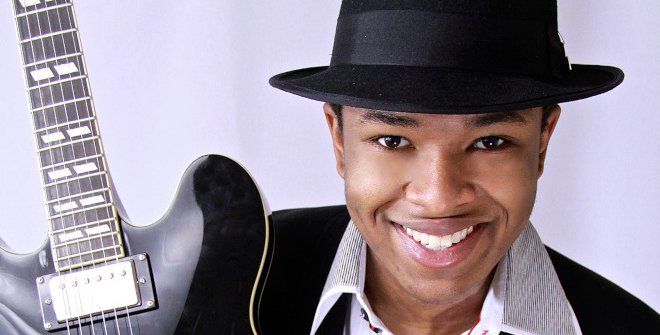Your 20s can be a crazy time of life. You’re out of college and expected to have your life together, but you’re really more high school student than adult. So for many of us, it’s a time of uncomfortable drifting that, if you’re lucky, eventually turns into a charted course. But not everyone struggles at that time in their life. King Solomon Hicks, singer/guitarist, age 24, for instance. He shows a sophistication and wisdom beyond his years on Harlem, his debut album.

The trap for young blues artists is coming in too hot and heavy. They’re often anxious to show everything they’ve got. It’s not a bad strategy, since a second album is hardly a given for most artists, but it can overwhelm the listener, making them feel more battered than elevated. So the impressive thing about Hicks is how much restraint he shows here. There are fantastic vocals, infectious grooves, and lots of solid blues licks, but it’s all in manageable proportions. He’s not force-feeding us his work, so much as he’s making us hungry for his delicious menu.
The tastiest dish is Hicks’ voice. It’s not the usual blues bass. A better comparison might be rocker Lenny Kravitz. But it works perfectly within his music, which is fairly straight-forward blues and soul. It’s a modern voice fronting an older-fashioned sounding band, but there’s nothing elderly about the backing tracks. The result is not a new sound, but it’s a different one. Where blues rock is often used as a short-hand to describe guitar-heavy rock music that uses a blues-based vocabulary, Hicks has created more of a rock blues, that plays with the proportions.
You can hear the difference in a standard like “Every Day I Have the Blues,” made famous by B.B. King. Organ explodes out of the track and Hicks lays down a guitar riff that’s right out of Cream’s playbook. Factor in his rock voice and it’s a decidedly rock-and-roll take take on a blues standard. But there’s enough blues in Hicks’ solos and fills that the end-product reads as bluesy. A huge part of that effect is that Hicks’ playing has taste for days. There’s lots of vibrato and a huge tone, but not too much unnecessary flash. In some ways, he’s like Stevie Ray Vaughan, had Vaughan been more inspired by B.B., rather than Albert King. But also, without Vaughan’s fret-based athleticism.
Hicks also isn’t scared to change songs up. His take on Chris Andrews’ “It’s Alright,” is almost unrecognizable, going from non-descript pop song (I wasn’t familiar with the original before seeking it out because Hicks covered it), to trippy, phase-drenched step-child of Jimi Hendrix and Joe Walsh. The new song is unrecognizable, but it shows off a heavier side of Hicks’ style.
The album features just two originals, both of them instrumentals. Hicks has an interesting sense of song and structure though, and it’ll be interesting to hear how his sound evolves as his songwriting develops. While he doesn’t sound like Robert Cray, Hicks reminded me of Cray in the way they both take other genres (Cray soul and Hicks rock and roll) and shift them to just short of full-on blues. It’s a neat twist that makes me curious to hear what Hicks has waiting for us.
Artist: King Solomon Hicks
Title: Harlem
Label: Mascot Label Group/Provogue
Release Date: March 13, 2020
Running Time: 39:18


